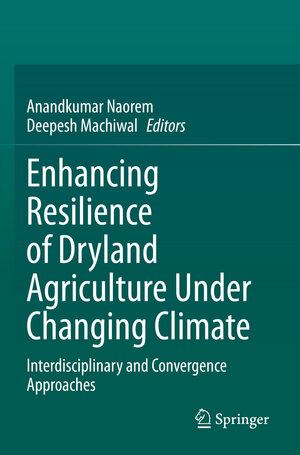
Enhancing Resilience of Dryland Agriculture Under Changing Climate
Interdisciplinary and Convergence Approaches
herausgegeben von Anandkumar Naorem und Deepesh MachiwalThis contributed volume describes management practices based on interdisciplinary and convergence science approaches from different disciplines of agricultural science to enhance the resilience of dryland agriculture. The main focus of this book is to address the current issues and trends along with future prospects and challenges in adopting salient agricultural management practices in drylands globally under a climate-change scenario. Climate change and global warming have profound repercussions on increasing frequency, severity, and duration of droughts and/or floods, which may have implications for future productivity of dryland agriculture, e. g., more water shortages or abundances and high or low runoff rates, diminished crop yields, and reduced water productivity. In past few years, many technological advancements and management strategies have been evolved to tackle the climate-induced risks of dryland agriculture considering interdisciplinary and convergence approaches that integrate knowledge from multi-disciplines. This book is an attempt to bridge the gap in literature by unraveling controversies and characteristics of dryland ecosystems under the changing climate and dealing with detailed procedures of applying the advanced practices adapted to climate change for management of dryland agriculture. This edited book is of interest to ecologists, economists, environmentalists, geologists, horticulturalists, hydrologists, soil scientists, social scientists, natural resource conservationists and policy makers dealing with dryland agriculture. This book offers a broad understanding of dryland agriculture and assists the reader to identify both the current as well as the probable future state of dryland agriculture in a global context.



